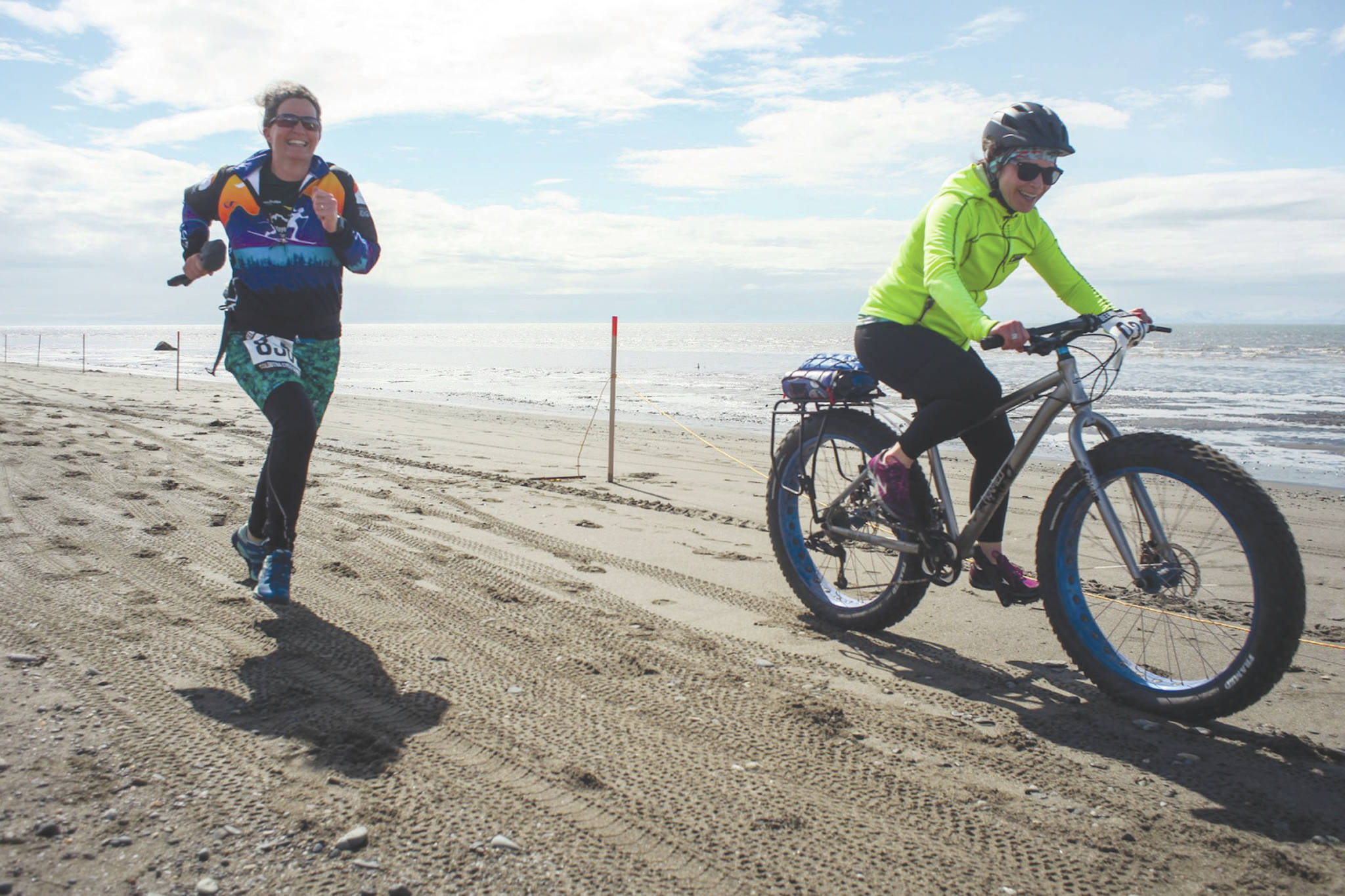An annual fat bike and foot race on the beaches of the Kenai Peninsula is going virtual this year in order to maintain social distancing and mitigate the spread of COVID-19 within the community.
The Mouth to Mouth Wild Run & Ride, organized annually by Cook Inletkeeper, is a race that spans the beaches between the mouths of the Kasilof and Kenai Rivers along the Cook Inlet. Participants in this year’s event will undertake the race on their own time and post their results online, according to a May 1 press release from Cook Inletkeeper.
The race is divided into three categories: a 3-mile run, a 10-mile run and a 10-mile fat bike route. Megan Youngren, a peninsula runner who has won the 10-mile foot race for the last two years and recently represented Alaska at the U.S. Olympic Marathon Trials, will be serving as the virtual race coordinator this year and helping to facilitate the online event.
“This race has a place for everybody,” Youngren said in the press release. “Competitive racers will enjoy a good challenge, and unique racing experience on the beaches of Cook Inlet, Alaska — where other participants of all ages will enjoy a fun, family outing.”
Throughout the month of May, people can register for the race at inletkeeper.org/m2m. Then at any point in May, those who have registered can run or fat bike on the beach between Kasilof and Kenai, either individually or with their household. Participants should record their times using any GPS app and post their times to Cook Inletkeeper’s virtual race coordinator. Kaitlin Vadla, regional director of Cook Inletkeeper’s Community Action Studio in Soldotna, said in the press release that a leaderboard will be posted online and updated daily, and participants can enter each category multiple times.
“Even though we can’t be together in one place this year, we can still do good together, and celebrate healthy watersheds and healthy people,” Vadla said.
Last year’s race drew 136 participants, and at the time Kenaitze elder Eli Darien spoke to the racers about their responsibility to take care of their home and what the beach means to him and the Dena’ina people. Cook Inlet was named after Captain James Cook in 1778, but for thousands of years the Dena’ina Athabaskan people have called the area Tikahtnu, which translates to “big river water.”
For more information about the race, email wildrunandride@gmail.com, and to register for the race go to www.inletkeeper.org/m2m.

